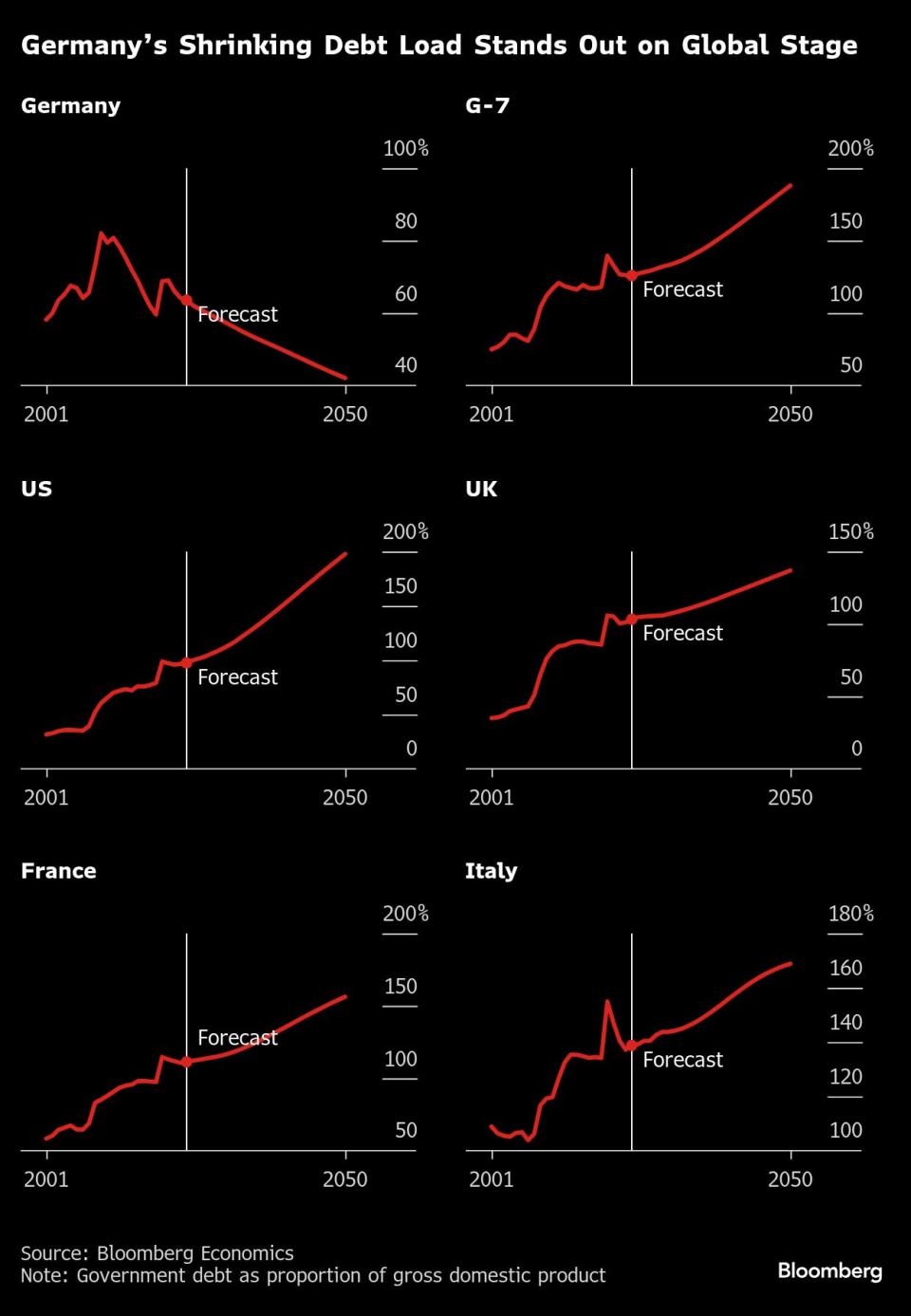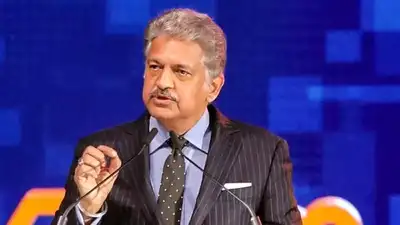
Germany faces a limited path to more lenient fiscal policy, with the result of Sunday’s parliamentary election threatening to reduce the options of next government in trying to lift the economy out of its long bout of stagnation.
Mainstream parties including Friedrich Merz’s CDU/CSU won less than two thirds of the seats in the lower house, leaving them short of the necessary votes to revise strict limits on public borrowing enshrined in the constitution.
It’s a major setback for Merz, whose conservatives garnered 28.5% — the most votes in Sunday’s poll. The Social Democrats and the Greens dropped to 16.4% and 11.6% respectively, with extremist parties on the left and right winning a combined 29.6%. Translated into seats in parliament that leaves the far-right AfD and Left with a combined 216 lawmakers in the 630 member parliament.
While Merz himself has signaled his priority is to cut spending and lower taxes, economists have said such measures won’t create the kind of fiscal space necessary to modernize Germany’s aging infrastructure and boost defense spending. Center-left parties — the SPD and the Greens — had vowed to change Germany’s fiscal framework, which limits budget shortfalls to 0.35% of gross domestic product.
The Left is in favor of ditching the debt brake, but it also wants to lower the defense budget and opposes Merz’s platform on many other issues, including taxation and migration. That could greatly complicate any agreement involving that party. Meanwhile, the AfD wants to stick to the country’s strict debt limits.
Source: FINANCE.YAHOO








